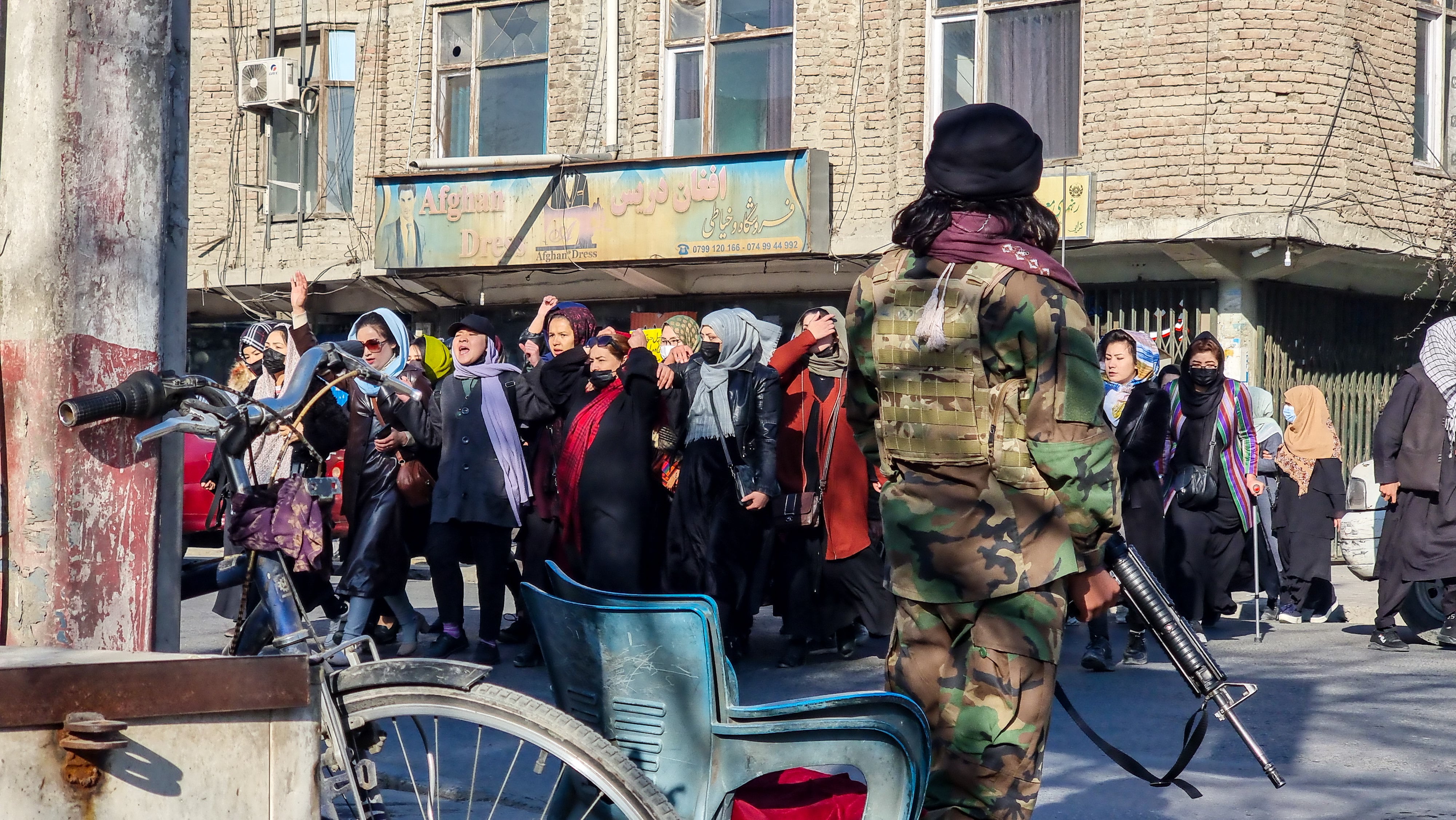Afghan men walk out of classes to support women banned from colleges as Taliban launches misogynist defence
‘Girls should learn, but not in areas that go against Islam and Afghan honour,’ says Taliban minister

Several men have walked out of classrooms and many professors in Afghanistan’s universities have resigned in protest against the Taliban’s hardline measure to not allow women students in educational institutions.
The Taliban’s education minister, however, has defended the regime’s decision to stop women from studying in colleges and universities by blaming female students for not donning the hijab properly and pursuing subjects of science that do not match “Afghanistan culture”.
“We told girls to have proper hijab but they didn’t and they wore dresses like they are going to a wedding ceremony,” the caretaker government’s education minister Nida Mohammad Nadim said.
“Girls were studying agriculture and engineering, but this didn’t match Afghan culture. Girls should learn, but not in areas that go against Islam and Afghan honour,” the Taliban leader said on Thursday, just days after issuing the radical ban barring women from colleges until further notice.
He said the move stripping thousands of women from education was “necessary” to stop the mixing of genders in universities still being run under the regime.
Some of the subjects being taught also violated the principles of Islam, he said. The insurgents’ main understanding of Islam has been the Deobandi school, known to be a variant of Hanafi Islam founded in the mid-19th century.
The Taliban leader, who has worked for the militant outfit as a former provincial governor, police chief and military commander, said he opposes women being educated, claiming this was against Islamic and Afghan values.
Around 60 professors working across universities have resigned from their roles, citing injustice to the country’s women, who now seemingly have no avenue left to educate themselves.
Several male students in these colleges have been seen on videos on Twitter walking out in solidarity with their female counterparts.
“Such manoeuvres [by the Taliban] hurt me a lot as an associate professor of the university who spent more than 10 years in the higher education sector as a student and lecturer. Resignation from my post was the last option that I had at my disposal,” said Obaidullah Wardak, a former faculty member at Kabul university.
Armed Taliban fighters have continued to hound women after the decision was rolled out.
“Their soldiers walk around the universities and do not allow people to gather there so that protests and reactions are prevented. They even arrested some of the female women’s rights activists for a short time for not protesting,” he told The Independent from Kabul.
Shortly after the exit of the US-backed administration in Afghanistan, the Taliban seized power and said it would work to preserve the rights of girls and women — promising a far more liberal regime. But the promises seem to have reversed as seen with the policies and actions of the regime.
Public execution, flogging, lashings on women, assault on musicians, shutting down of schools have returned within a year of the militant group taking over.
The international community, including several Muslim-majority nations like Saudi Arabia, Turkey and Qatar, have urged the Taliban to reconsider its move.
But the Taliban’s education minister said foreigners should stop meddling in the regime’s affairs.





Join our commenting forum
Join thought-provoking conversations, follow other Independent readers and see their replies
Comments